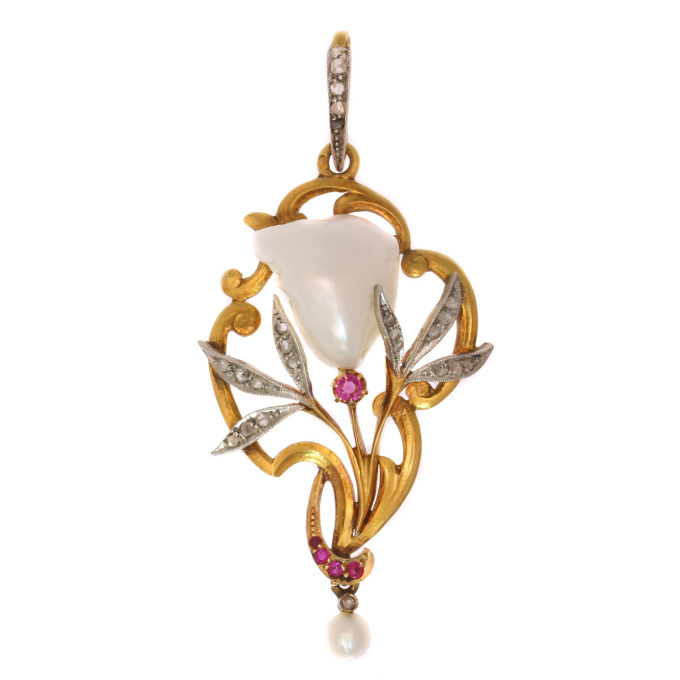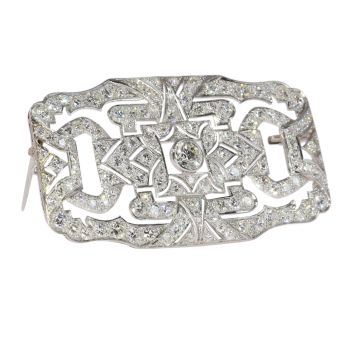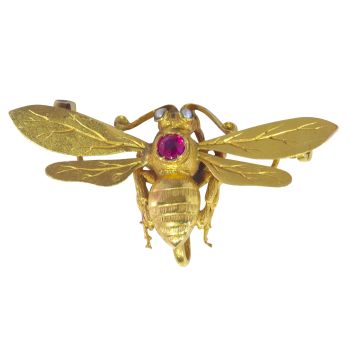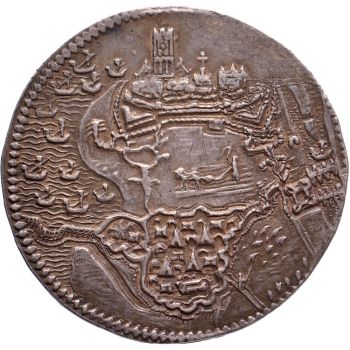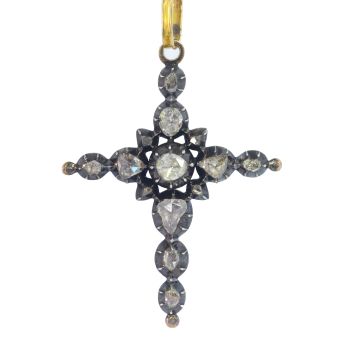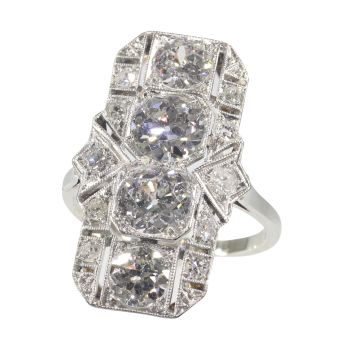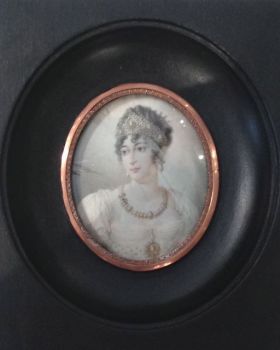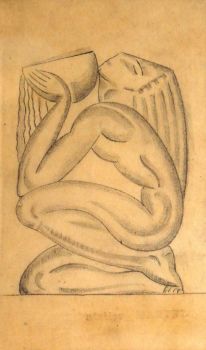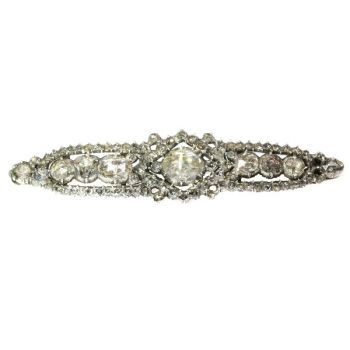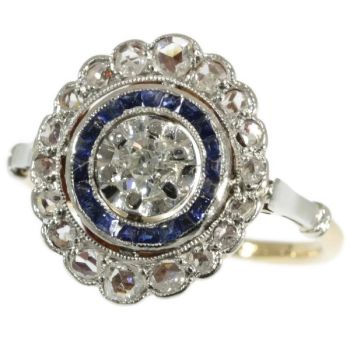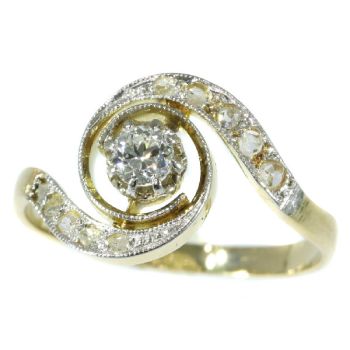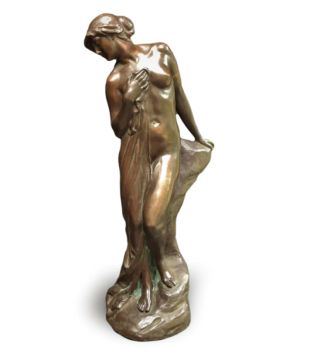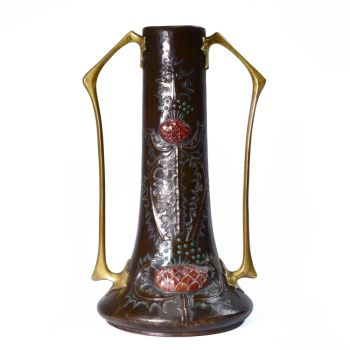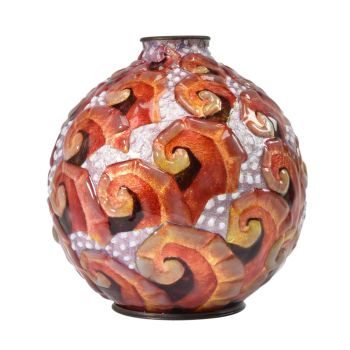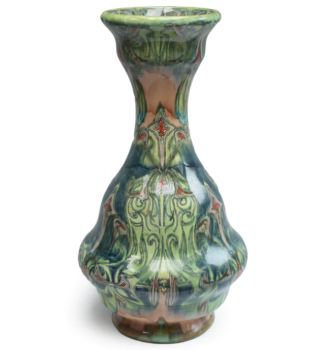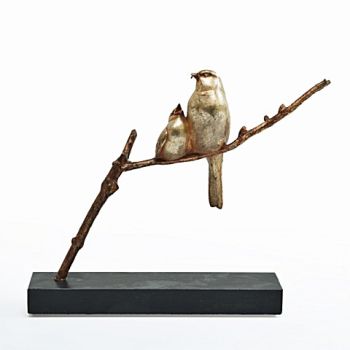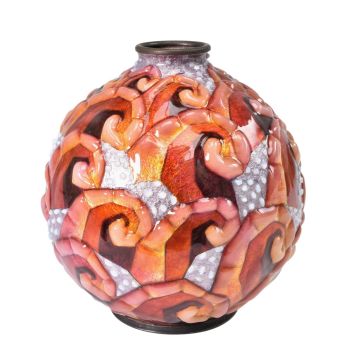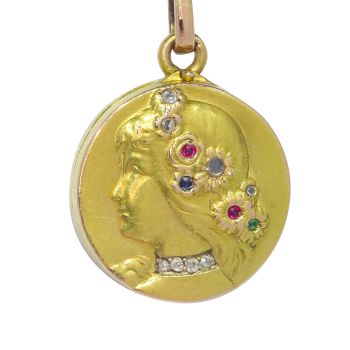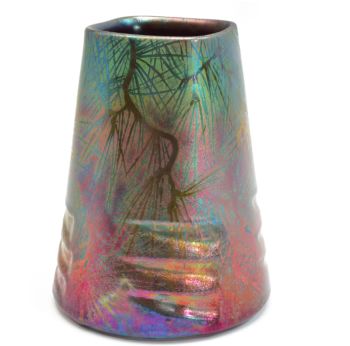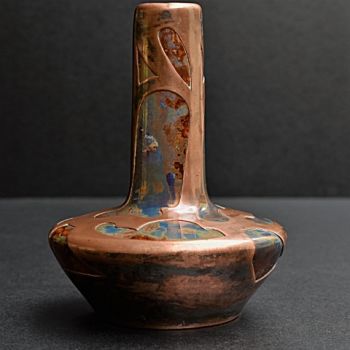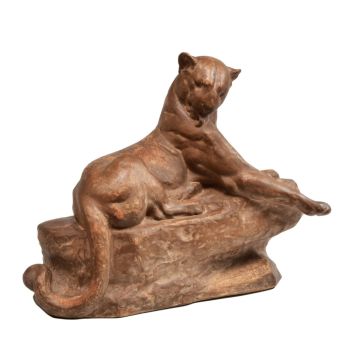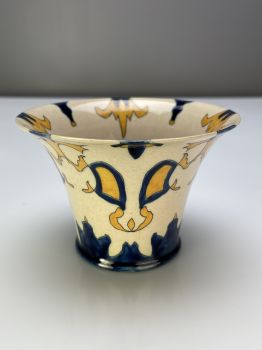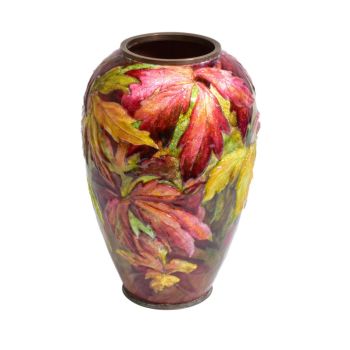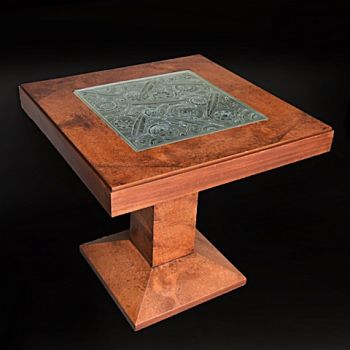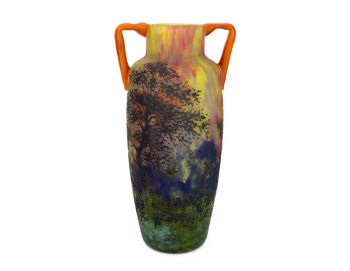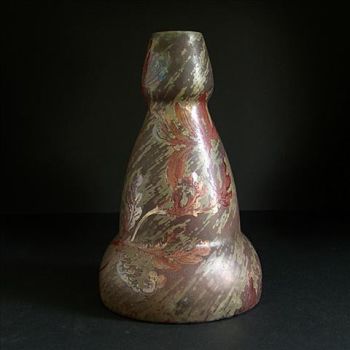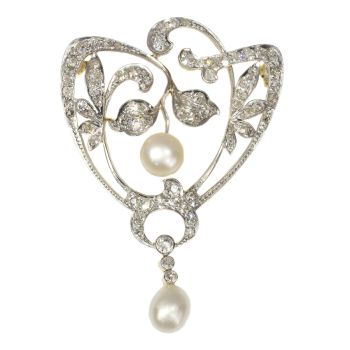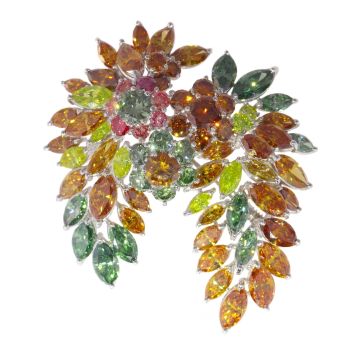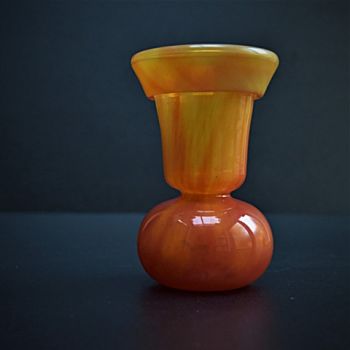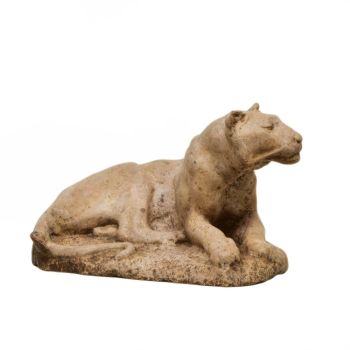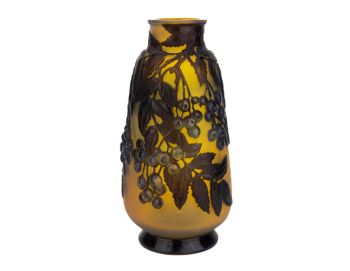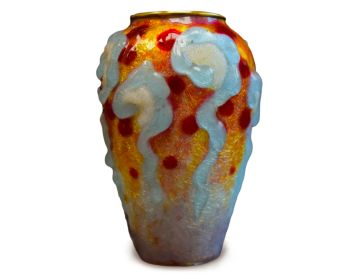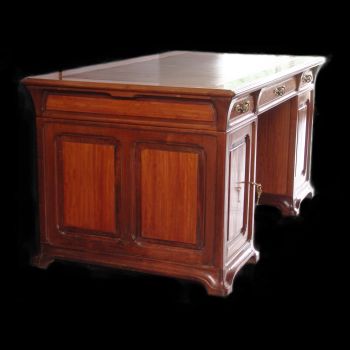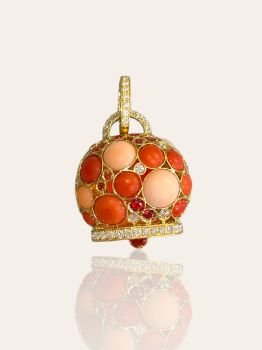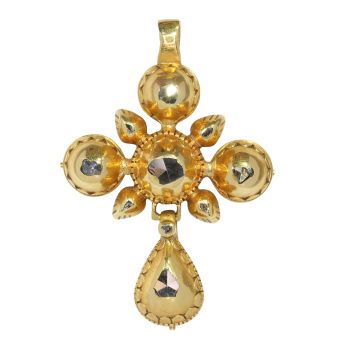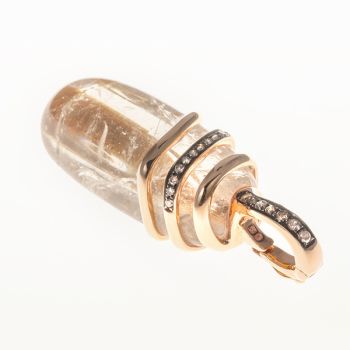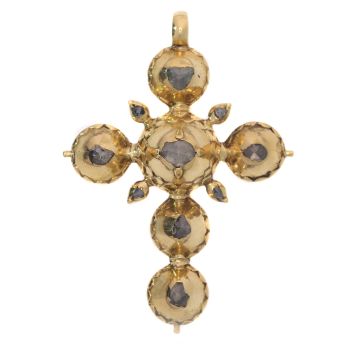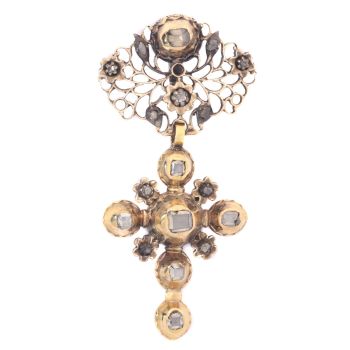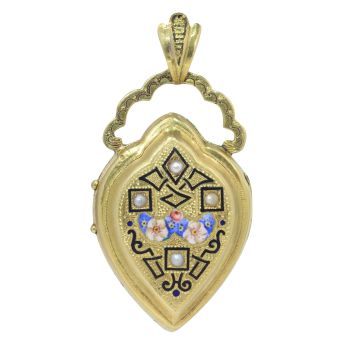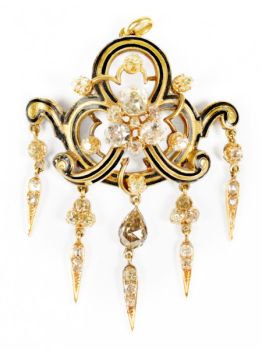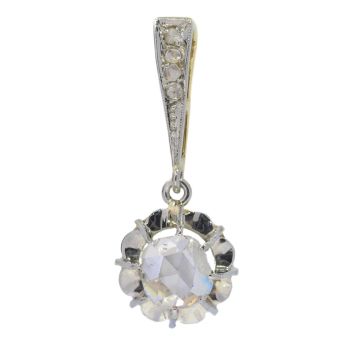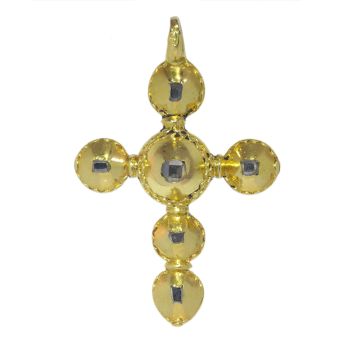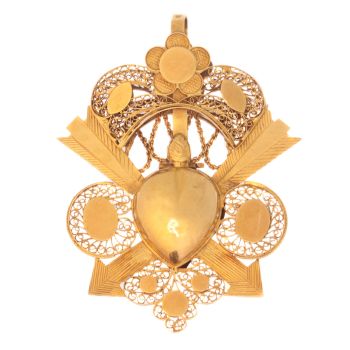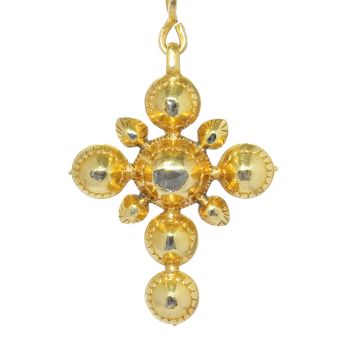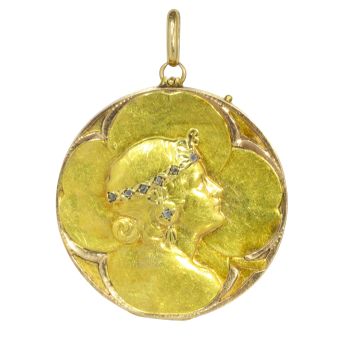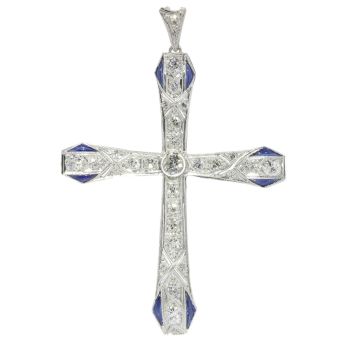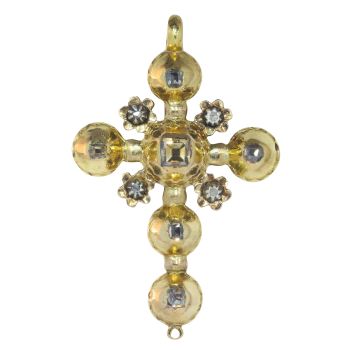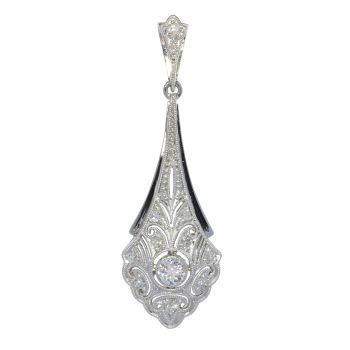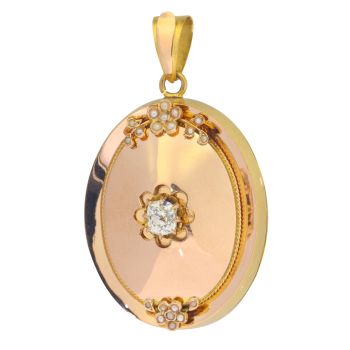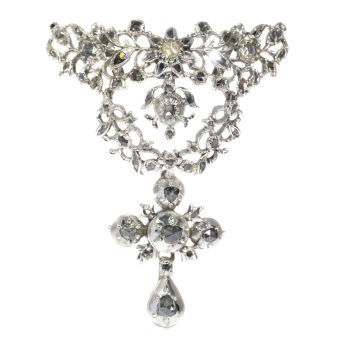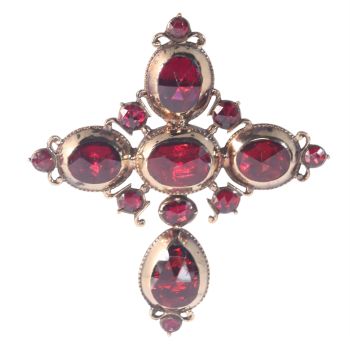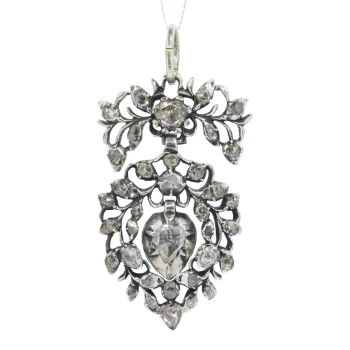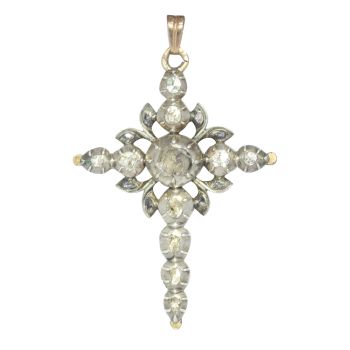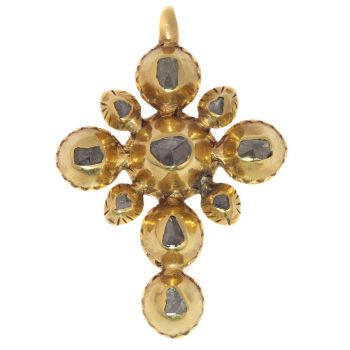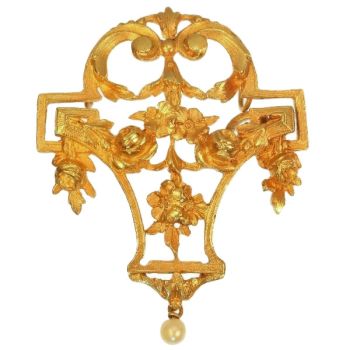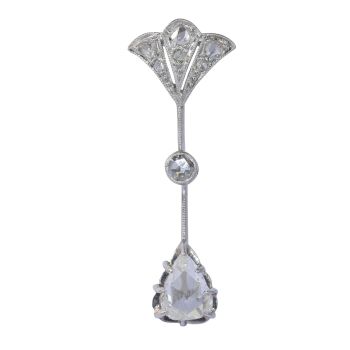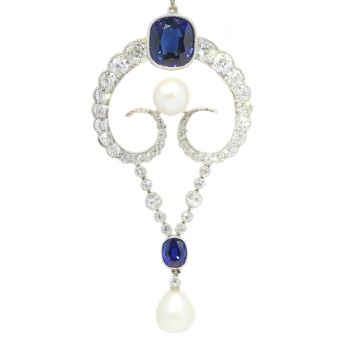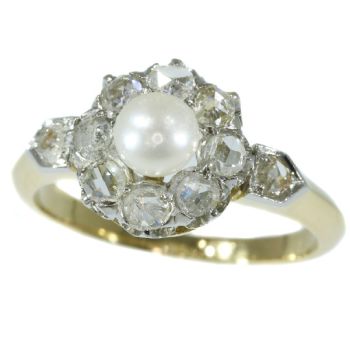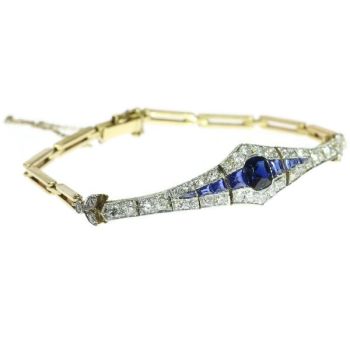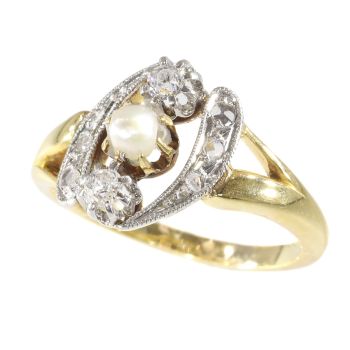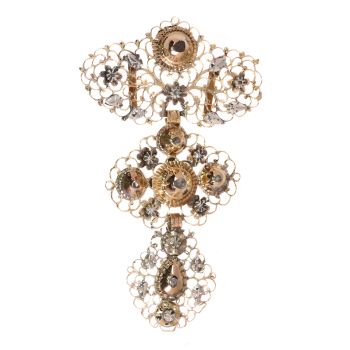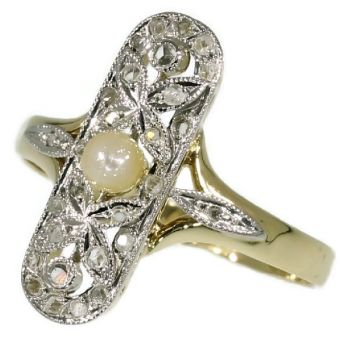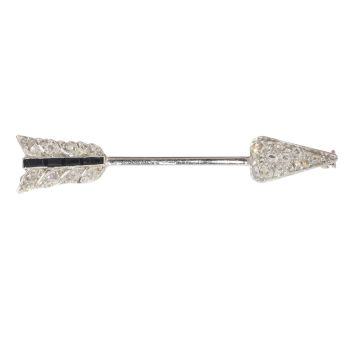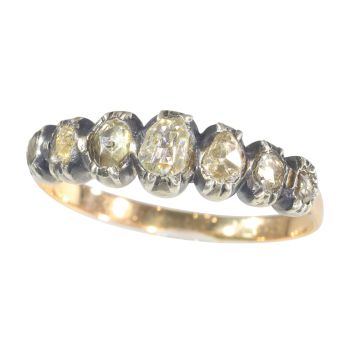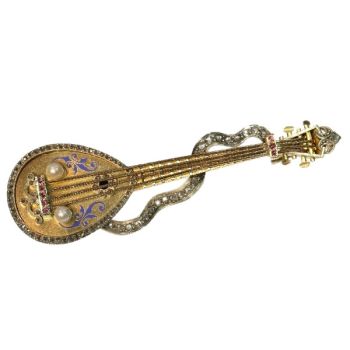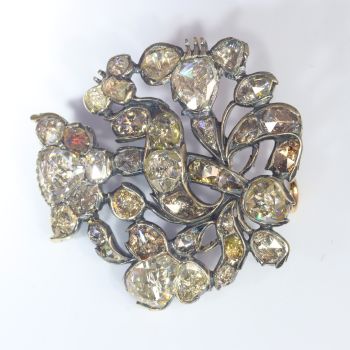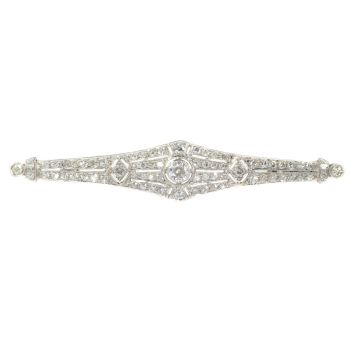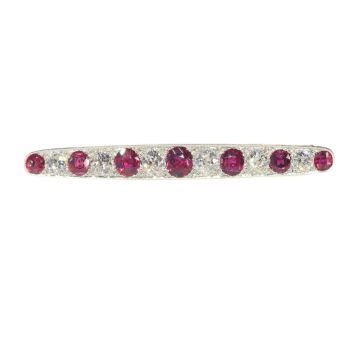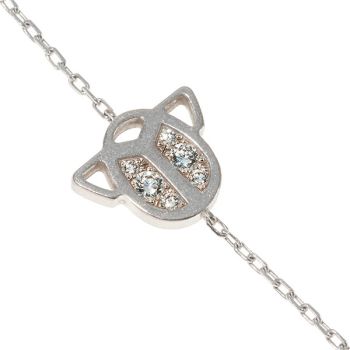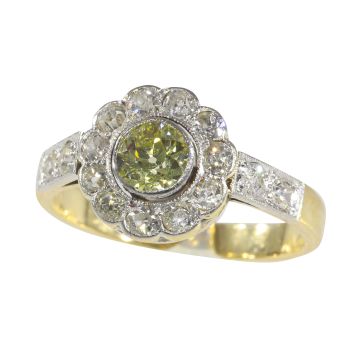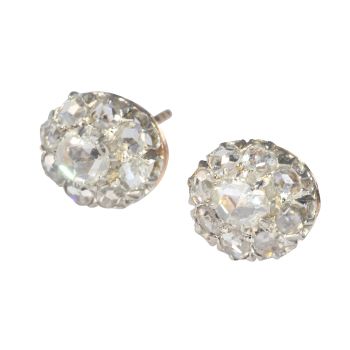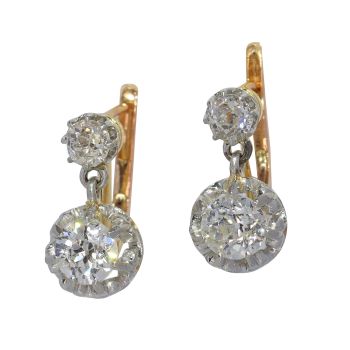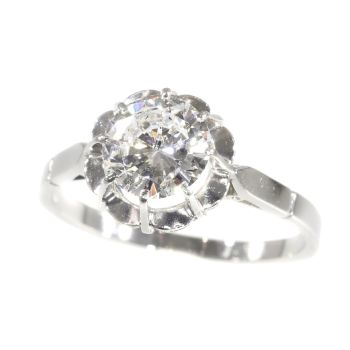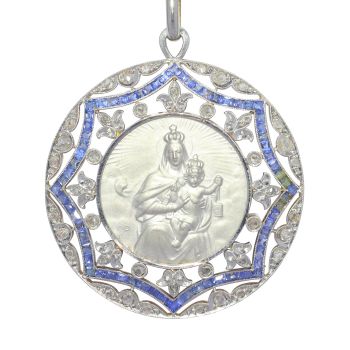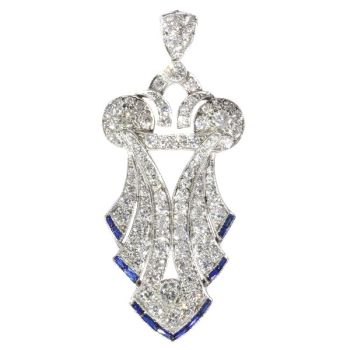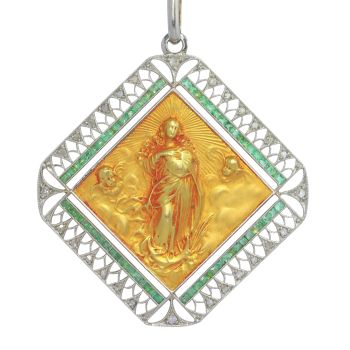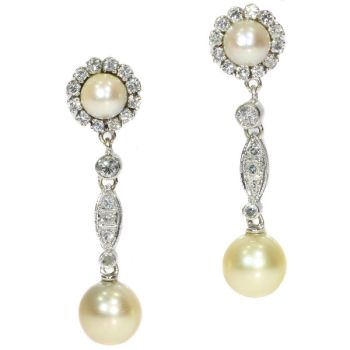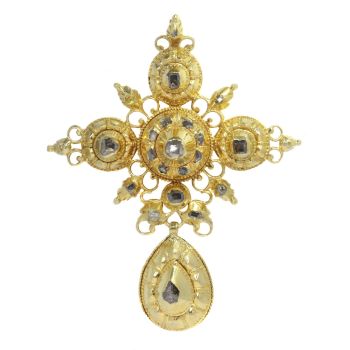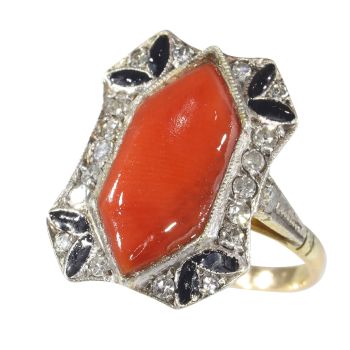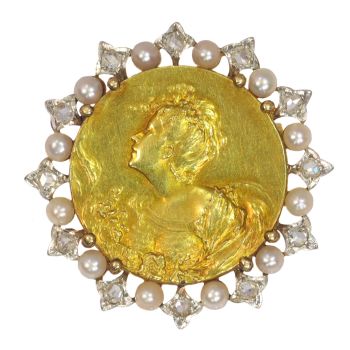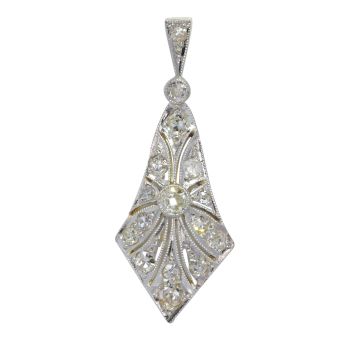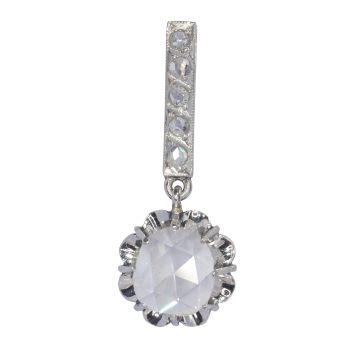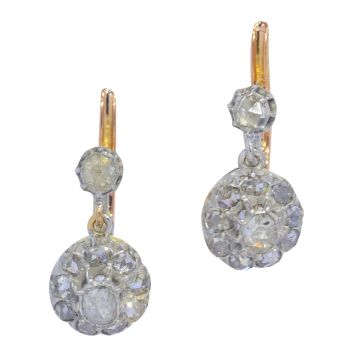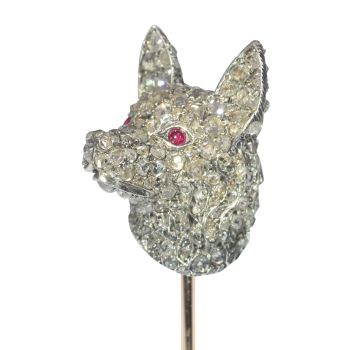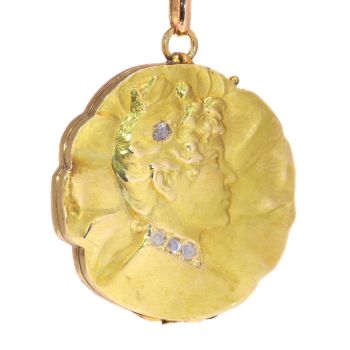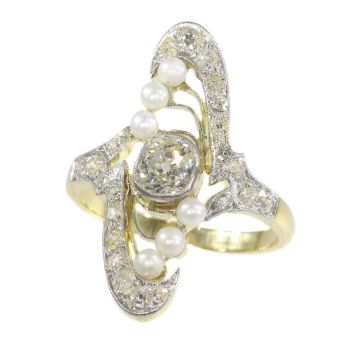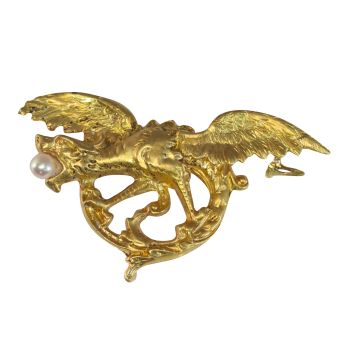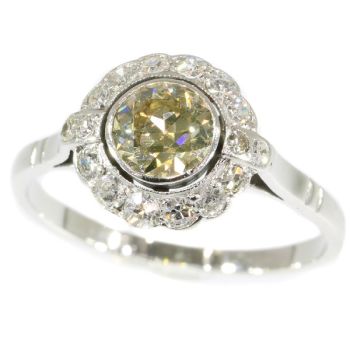Pingente Art Nouveau francês com grande dente de cachorro pérola e diamantes rubis do Mississippi 1900
Artista Desconhecido
DiamanteOuroPérolaGemstone
€ 4.250
Adin Fine Antique Jewellery
- Sobre arte
Antique jewelry object group: pendant
Condition: excellent condition
- (more info on our condition scale)
Country of origin: France
Style: Art Nouveau - Art Nouveau (French for New Style) is an international movement and style of art, architecture and applied art - especially the decorative arts - that peaked in popularity at the turn of the 20th century (1890–1905).
The name "Art Nouveau" is French for "new art". It is also known as Jugendstil, German for "youth style", named after the magazine Jugend, which promoted it, and in Italy, Stile Liberty from the department store in London, Liberty & Co., whichpopularised the style, and in Holland as “Sla-olie-stijl”, Dutch for “salad oil style” after a advertisement poster for this product that was made in that style.
A reaction to academic art of the 19th century, it is characterized by organic, especially floral and other plant-inspired motifs, as well as highly stylized, flowing curvilinear forms. Art Nouveau is an approach to design according to which artistsshould work on everything from architecture to furniture, making art part of everyday life. Although Art Nouveau fell out of favour with the arrival of 20th-century modernist styles, it is seen today as an important bridge between the historicism ofNeoclassicism and modernism.
- See also: Art Nouveauor more info on styles
Style specifics: Art Nouveau - Although Art Nouveau took on distinctly localised tendencies as its geographic spread increase some general characteristics are indicative of the form. A description published in Pan magazine of Hermann Obrist's wall-hanging Cyclamen(1894) described it as "sudden violent curves generated by the crack of a whip", which became well known during the early spread of Art Nouveau.
Subsequently, not only did the work itself become better known as The Whiplash, but the term "whiplash" is frequently applied to the characteristic curves employed by Art Nouveau artists. Such decorative "whiplash" motifs, formed by dynamic,undulating, and flowing lines in a syncopated rhythm, are found throughout the architecture, painting, sculpture, and other forms of Art Nouveau design.(from: Wikipedia)
Period: ca. 1900
- (events & facts of this era, poetry of this era, fashion of this era)
Source of inspiration: Mother Nature (see also: flower symbolism)
Material: Two tones of precious metal, the main part being 18K yellow gold and the white parts are either white gold or platinum.
- (more info on precious metals)
Extra information: Dog tooth pearl - This type of pearl is most likely a fresh water pearl from either the Mississippi and Tennessee river. These specific irregular shapes are called dog tooth.
Diamond(s):23 senailles. A senaille is a simplified rose cut diamond, a small diamond chip with perhaps a few polished facets. We do not have the weight of these diamonds which is normal in our trade when it comes to senailles.
Precious stones: Five rubies. We did not check if the rubies are lab produced or not as this information has no influence on the value of this jewel. Natural rubies and lab produced rubies were both used in this era, rather more for their effect than for their intrinsic value.
Onebig baroque pearl also called a dog tooth
One seed pearl
Birthstones: Diamond is the birthstone (or month stone) for April, ruby for July and pearl for June.
- (more info on birthstones)
Monogram: Illegible remains.
Hallmarks: The French control mark for 18K gold representing an eagle's head that was in use in France from about 1838.
- (more info on hallmarks)
Dimensions: height 5,37 cm (2,11 inch)
Weight: 6,90 gram (4,44 dwt)
Reference Nº: 19063-0047
Copyright photography: Adin, fine antique jewelry
- Sobre artista
Pode acontecer que um artista ou criador seja desconhecido.
Algumas obras não devem ser determinadas por quem são feitas ou são feitas por (um grupo de) artesãos. Exemplos são estátuas dos tempos antigos, móveis, espelhos ou assinaturas que não são claras ou legíveis, mas também algumas obras não são assinadas.
Além disso, você pode encontrar a seguinte descrição:
•"Atribuído a …." Na opinião deles, provavelmente uma obra do artista, pelo menos em parte
• “Estúdio de…” ou “Oficina de” Em sua opinião um trabalho executado no estúdio ou oficina do artista, possivelmente sob sua supervisão
• "Círculo de ..." Na opinião deles, uma obra da época do artista mostrando sua influência, intimamente associada ao artista, mas não necessariamente seu aluno
•“Estilo de…” ou “Seguidor de…” Na opinião deles, um trabalho executado no estilo do artista, mas não necessariamente por um aluno; pode ser contemporâneo ou quase contemporâneo
• "Maneira de ..." Na opinião deles, uma obra no estilo do artista, mas de data posterior
•"Depois …." Na opinião deles uma cópia (de qualquer data) de uma obra do artista
• “Assinado…”, “Datado…” ou “Inscrito” Na opinião deles, a obra foi assinada/datada/inscrita pelo artista. A adição de um ponto de interrogação indica um elemento de dúvida
• "Com assinatura ….”, “Com data ….”, “Com inscrição ….” ou “Tem assinatura/data/inscrição” na opinião deles a assinatura/data/inscrição foi adicionada por outra pessoa que não o artista
Você está interessado em comprar esta obra de arte?
Artwork details
Related artworks
- 1 - 4 / 12
Frères Daum
Daum Nancy – “Paysage Soleil Couchant” vase with two applied handles1900 - 1910
Preço em pedidoAntiques Emporium
1 - 4 / 24- 1 - 4 / 24
- 1 - 4 / 24
- 1 - 4 / 12

